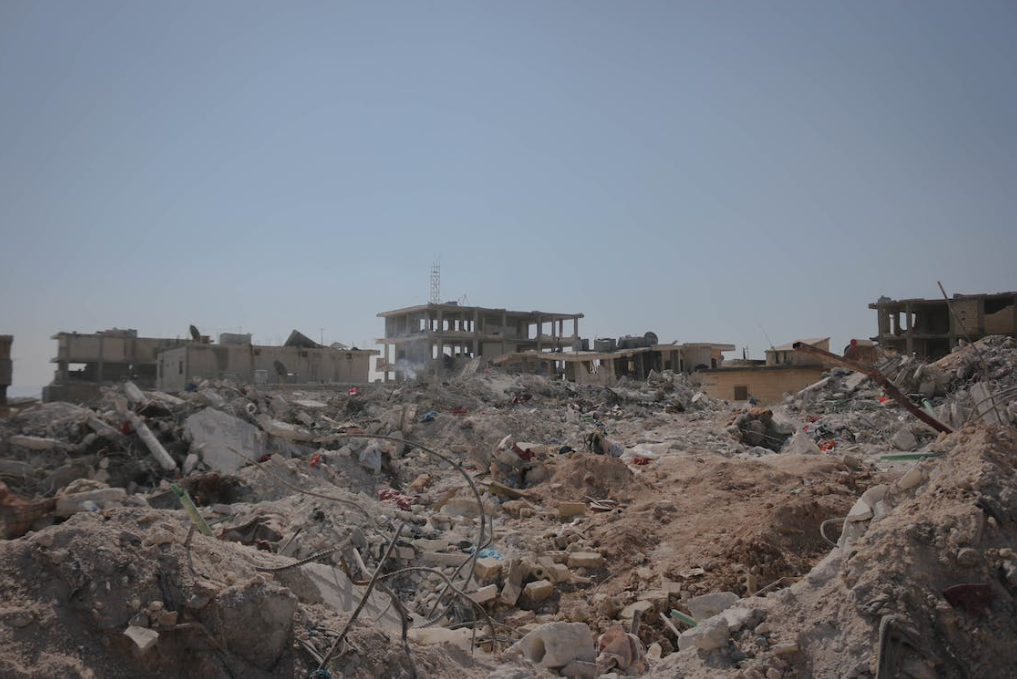SUPPORTING an Indian charity during natural disasters can ensure that timely aid is given to people in urgent need of rescue and care. India is a land of diverse landscapes and climates. While this diversity offers unparalleled beauty and culture, it also makes the country susceptible to a wide range of natural disasters, including floods, earthquakes, landslides, cyclones and more. When these calamities strike, it is the Indian charity that often emerges as the unsung hero, standing at the frontlines to assist the authorities and provide crucial support to the affected communities. In this article, we will explore five compelling reasons to support an Indian charity during natural disasters, with examples showcasing their indispensable role.
1. First responders on the ground
When a natural disaster occurs in India, be it a devastating flood in Assam, a seismic earthquake in Uttarakhand or a landslide in Kerala, the local Indian charity is often the first to respond. Their proximity to the affected areas and deep-rooted connections with the communities enable them to swiftly mobilize and provide immediate relief. These NGOs are well-acquainted with the local terrain, language and cultural nuances, making them highly effective in rapidly assessing the situation and delivering much-needed aid.
For instance, during floods, a catastrophe of unprecedented magnitude, an Indian charity can play a pivotal role in providing immediate relief to the affected population. This Indian charity can organize rescue operations, distribute food and medical supplies and establish temporary shelters to accommodate the displaced.
2. Tailored solutions for local needs
An Indian charity is well-versed in understanding the specific needs of the affected communities. They recognize that the requirements of a flood-stricken village in Bihar might differ significantly from those of an earthquake-affected town in Gujarat. This localized knowledge allows an Indian charity to provide tailored solutions that are not only more efficient but also more culturally sensitive.
Take, for instance, the numerous cyclones that hit India’s eastern coast, like Cyclone Fani in 2019. An Indian charity can work closely with local authorities and communities to formulate and execute evacuation plans, set up emergency shelters and deliver essential supplies. Their efforts not only save lives but also ensure that support is precisely aligned with the affected regions’ unique challenges.
3. Long-term rehabilitation and rebuilding
The aftermath of a natural disaster is often as critical as the immediate response. An Indian charity understands the significance of long-term rehabilitation and rebuilding efforts. They are committed to helping affected communities get back on their feet and regain their self-sufficiency. This involves not only reconstructing homes and infrastructure but also addressing the psychological and emotional scars left by the disaster.
After the devastating 2004 Indian Ocean tsunami, various Indian charities undertook comprehensive rehabilitation programs in the affected regions of Tamil Nadu, Andhra Pradesh and Kerala. These programs included rebuilding houses, providing counseling for trauma victims and reviving local economies by supporting livelihoods. Such holistic efforts by an Indian charity have been instrumental in fostering resilience and reducing vulnerability to future disasters.
4. Efficient resource utilization
Supporting an Indian charity during natural disasters ensures that your donations are maximally utilized. An Indian charity often operates on modest budgets and has established networks that enable them to source and distribute resources efficiently. A significant portion of the funds they receive goes directly into relief efforts, making your contributions highly impactful.
For example, during the annual monsoon floods in Assam, an Indian charity was able to rapidly deploy resources to address the immediate needs of the affected communities. These resources include food, clean water, sanitation facilities and medical aid. Their cost-effective approach ensures that your donations have a direct and tangible effect on those who need it the most.
5. Transparent and accountable operations
The Indian charity is accountable to the local communities they serve and are typically transparent in their operations. They provide regular updates on their activities, ensuring donors have a clear understanding of how their contributions are being utilized. This transparency builds trust and allows you to monitor the impact of your support.
An excellent example of this transparency is the response to the devastating 2018 Kerala floods. Several Indian NGOs used social media and online platforms to update donors on the progress of their relief operations. Donors to any Indian charity were able to witness firsthand the difference their contributions made in helping the state recover from the catastrophe.
Support an Indian charity on Give.do
Natural disasters strike with little warning and can leave a trail of devastation in their wake. When they occur in India, an Indian charity can play a vital role in alleviating the suffering of affected communities. By supporting Indian charities during such crises, you contribute to their remarkable efforts in providing immediate relief, tailored assistance, long-term rehabilitation, efficient resource utilization and transparent operations.
The examples of floods, earthquakes, landslides and cyclones in India highlight the critical role these organizations play in disaster management. Your support can make a significant difference in the lives of those facing these calamities, and it is through your generosity that Indian NGOs can continue their invaluable work on the frontlines of disaster relief. So, when natural disasters strike, consider supporting an Indian charity on Give.do– you may be helping to save a life or rebuild a community in need.

Give exists to alleviate poverty by enabling the world to give. Established in 2000, Give, together with its partners, is the largest and most trusted giving platform in India. Give enables individuals and organizations to raise and donate funds conveniently to any cause they care about, with offerings including crowdfunding, corporate giving, cause marketing, and philanthropy consulting. Give’s community of 2.6M+ donors supports 3,000+ verified nonprofits, serving 15M+ people across the country.
Discover more from give.do
Subscribe to get the latest posts to your email.





